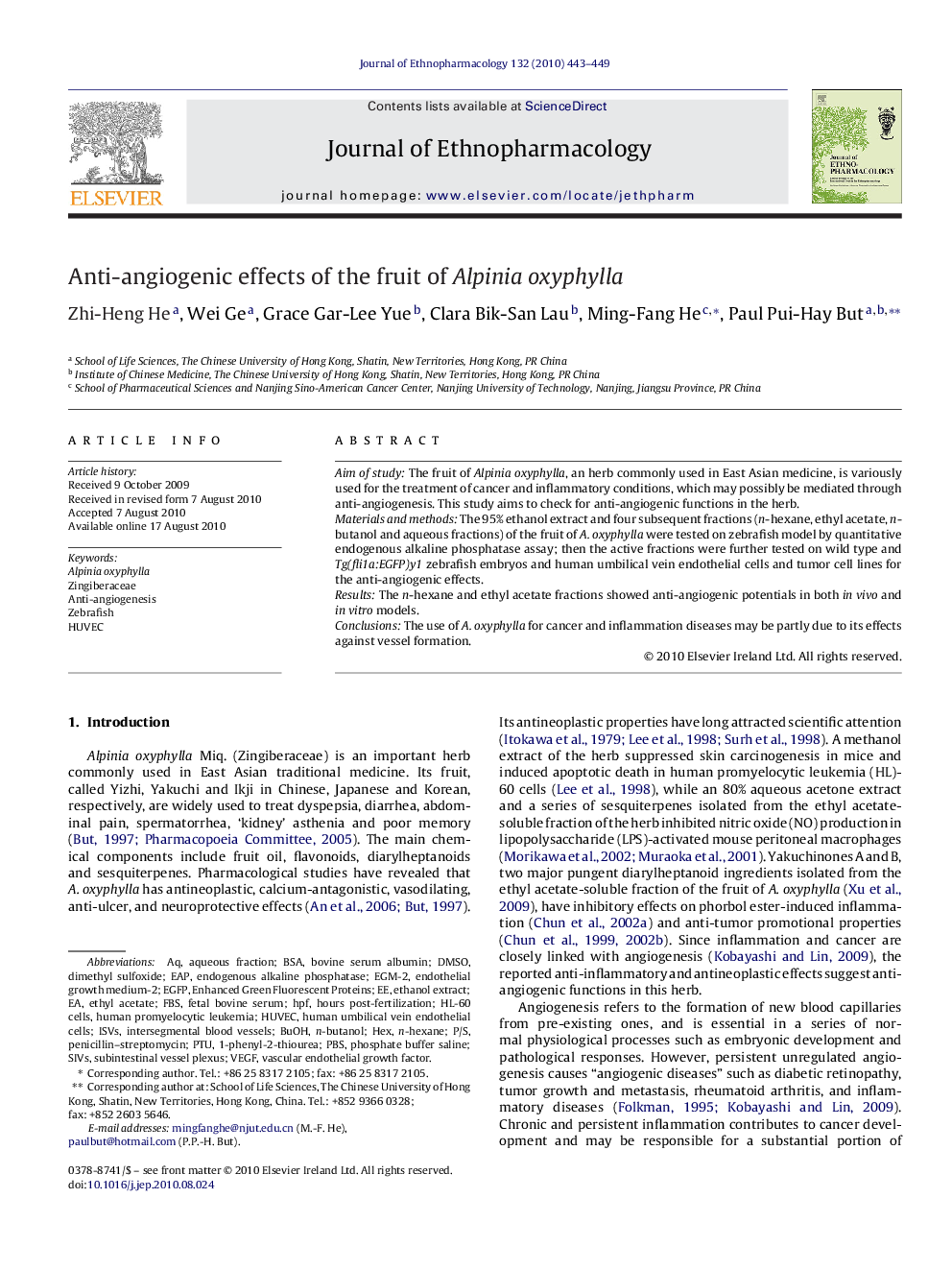| Article ID | Journal | Published Year | Pages | File Type |
|---|---|---|---|---|
| 2545777 | Journal of Ethnopharmacology | 2010 | 7 Pages |
Aim of studyThe fruit of Alpinia oxyphylla, an herb commonly used in East Asian medicine, is variously used for the treatment of cancer and inflammatory conditions, which may possibly be mediated through anti-angiogenesis. This study aims to check for anti-angiogenic functions in the herb.Materials and methodsThe 95% ethanol extract and four subsequent fractions (n-hexane, ethyl acetate, n-butanol and aqueous fractions) of the fruit of A. oxyphylla were tested on zebrafish model by quantitative endogenous alkaline phosphatase assay; then the active fractions were further tested on wild type and Tg(fli1a:EGFP)y1 zebrafish embryos and human umbilical vein endothelial cells and tumor cell lines for the anti-angiogenic effects.ResultsThe n-hexane and ethyl acetate fractions showed anti-angiogenic potentials in both in vivo and in vitro models.ConclusionsThe use of A. oxyphylla for cancer and inflammation diseases may be partly due to its effects against vessel formation.
Graphical abstract.Figure optionsDownload full-size imageDownload as PowerPoint slide
